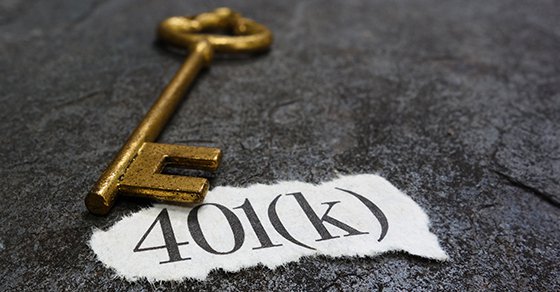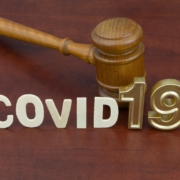The SECURE Act is Making Big Changes to 401(k) Plans
- Learn about new tax credits for employers enacted by the SECURE Act.
- The increased default rate for automatic enrollment safe harbor plans is a plus!
- More perks of the new rules regarding safe harbor plans!
Congress passed the SECURE Act (Setting Every Community Up for Retirement Enhancement) at the end of 2019. With that law came some big, new changes relating to 401(k) plans. Some of those changes are new tax credits for employers to assist with startup costs for new 401(k) plans, as well as some attractive changes to safe harbor plans. In this blog, Fiducial breaks down some of the biggest changes and how they may affect you and your business.

How will the SECURE Act affect you and your business?
Late last year, Congress passed, and the President signed into law, the Setting Every Community Up for Retirement Enhancement Act, aka the SECURE Act. Among its most notable rule changes are those pertaining to 401(k) plans. Here are some key highlights that may affect you and your business in the coming years.
New tax credit
Starting in 2020, the new SECURE Act rules create a tax credit of up to $500 per year to employers. This credit helps defray startup costs for new 401(k) plans and SIMPLE IRA plans that include automatic enrollment.
The credit, available for three years, is in addition to an existing plan startup credit. Employers who convert an existing plan to a plan with an automatic enrollment design may also claim this tax break. Are you thinking of setting up a 401(k) or SIMPLE IRA plan for your employees? Now may be the time. Fiducial can give you more information about how you may qualify for SECURE Act tax credits, either by creating a new plan for your employees or converting an existing plan.
Auto-enrollment safe harbor plans
An annual nondiscrimination test called the actual deferral percentage (ADP) test applies to elective deferrals under a 401(k) plan. The ADP test is deemed satisfied if a 401(k) plan includes certain minimum matching or non-elective contributions under either of two safe harbor plan designs and meets certain other requirements. (Certain other required rights and features must also be met, as well as a notice requirement.)
With this in mind, consider a safe harbor plan. One of the safe harbor plans is an automatic enrollment safe harbor plan. Starting in 2020, the new SECURE Act rules increase the cap on the default rate under an automatic enrollment safe harbor plan from 10% to 15%. This increase is only for years after the participant’s first deemed election year. For the participant’s first deemed election year, the cap on the default rate is 10%. This is an attractive perk for those individuals looking to increase their retirement savings.
Other safe harbor plan enticements
Under another type of 401(k) safe harbor plan, the plan either:
- Satisfies a matching contribution requirement, or
- Provides for a non-elective contribution to a defined contribution plan of at least 3% of an employee’s compensation on behalf of each non-highly compensated employee who’s eligible to participate in the plan.
Starting in 2020, new SECURE Act rules eliminate the safe harbor notice requirement. However, they maintain the requirement to allow employees to make or change an election at least once per year.
The rules also permit amendments to non-elective status at any time before the 30th day before the close of the plan year. Amendments after that time are allowed if the amendment provides a non-elective contribution of at least 4% of compensation (rather than at least 3%) for all eligible employees for that plan year. Also, the plan must be amended no later than the last day for distributing excess contributions for the plan year (in other words, by the close of the following plan year).
Widespread impact
These are only some of the provisions of the SECURE Act that might affect your organization. The law’s provisions address not only 401(k) plans, but also defined benefit plans, IRAs and 529 plans. Call Fiducial at 1-866-FIDUCIAL or make an appointment at any of our office locations to determine how the act may affect your existing retirement plan or any you’re considering implementing. We can help you make changes to existing plans or set up a new plan.









